The first time David Lean’s 1945 romantic masterpiece was shown to the public, the audience were in stitches. It not being a comedy, this was far from ideal. The director was so embarrassed, he returned to his hotel planning to break into the film lab and burn the negative at the earliest opportunity.
Eighty years on, the legacy of Brief Encounter has proved anything but. First, its train station setting and ubiquity on British TV led to parodies by everyone from Victoria Wood to Birds Eye ready meals.
Allow Instagram content?
This article includes content provided by Instagram. We ask for your permission before anything is loaded, as they may be using cookies and other technologies. To view this content, click 'Allow and continue'.
In 1999, it was voted #2 on the BFI’s 100 best British films of the century. Greta Gerwig has called it “the most romantic movie ever made”. Its central struggle – the pull of doomed, unconsummated love, of yearning between two people putting responsibility before happiness – has become the template for some of the greatest romantic stories committed to the big screen.
Getting there has not been an easy ride. Set in a noirish and literally (if not figuratively) steamy 1930s, the film stars Celia Johnson as Laura - perfectly ordinary, perfectly married, and painfully middle-class. Laid low by a piece of grit in her eye at a train station, she’s attended to by a passing doctor, Alec (Trevor Howard). The pair begin a whirlwind romance – despite their better natures.
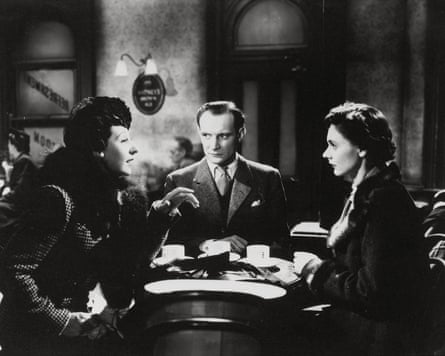
Though based on Noël Coward’s pre-war 1936 short play, Still Life, Brief Encounter was conceived and shot in the less film-friendly environment of wartime Britain. The changes made from stage to screen would change the story’s soul. A year-long affair would become a seven-week infatuation. A tale of extramarital guilt became one of middle-class self-restraint. It was a sort of wish-fulfilment Lean, for one, could relate to: his accountant father had abandoned his family in similar circumstances 22 years earlier.
Location filming in early 1945 was cold but happy, despite the misgivings some were beginning to have over the male lead. Howard was “pleasant, but rather stupid”, Johnson wrote. Lean agreed: “He later became a wonderful actor, but oh dear, there were a lot of things that went straight over his head.”
Carnforth railway station – now a Lancashire tourist attraction complete with replica tearoom – stood in for the Home Counties setting, chosen to give the crew time to cover their lamps in the event of a German air raid. Filming was still ongoing when the crew heard the UK’s supply of Technicolor cameras were being diverted to Buckingham Palace – Johnson remembered running to the wireless between takes to hear Winston Churchill announce Germany’s surrender.
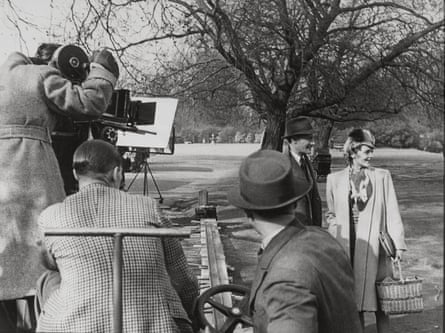
This meant that by the time Brief Encounter made it in front of an audience it was a wartime film, set before the war, playing to a postwar crowd. Perhaps that explains its curiously muted reception: despite critical adoration and Coward’s pedigree as a writer, it did solid but unremarkable business at the UK box office. Posters in the country’s industrial heartlands resorted to singing its praises “in spite of the wild praise of the London critics”.
For some, the film came to embody a kind of Britishness now lost in its pre-war origins. Lord Louis Mountbatten, writing to Coward in 1947, said: “There is no doubt in my mind that films of this sort must help to rebuild British prestige which is now temporarily eclipsed.” Months later, Mountbatten oversaw the partition of India, which left the British empire in tatters and as many as two million dead.
For others, the film’s story now felt too close to home. The constant wartime movement around the country’s rail network and abroad had triggered any number of “brief encounters” all on its own – affairs without the film’s determination to stay unconsummated. Despite the story’s pre-war setting and conception, it nonetheless now conjured spectres of guilt some audiences would rather have forgotten.
Adoration in certain circles, though, kept the Brief Encounter flame alive long after it left cinemas. One of 11 Grand Prix (the predecessor to the Palme d’Or) winners at the 1946 Cannes film festival, it escaped from that year’s Academy Awards with three nominations but no statuettes. The first of Sight & Sound’s now infamous critics’ polls in 1952 placed it a rung above Citizen Kane.
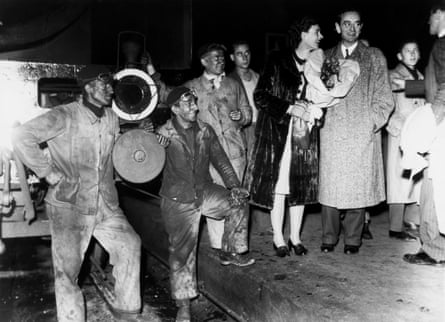
And its reputation among the public grew over time. Lean remembered, coincidentally, waiting for a train when a man approached threatening to punch him. “Do you realise, sir,” Lean recalled he said, “that if Celia Johnson could contemplate being unfaithful to her husband, my wife could contemplate being unfaithful to me?” Divorce still a touchy subject in the UK, Brief Encounter’s popularity would rise as public attitudes liberalised.
In the meantime, the film received an indirect boost in the US, where Billy Wilder was feeling inspired by one of Brief Encounter’s smallest characters. Valentine Dyall’s uncredited turn as a man whose empty flat almost serves as the couple’s love nest would morph into a career-best, sad-puppyish turn from Jack Lemmon.
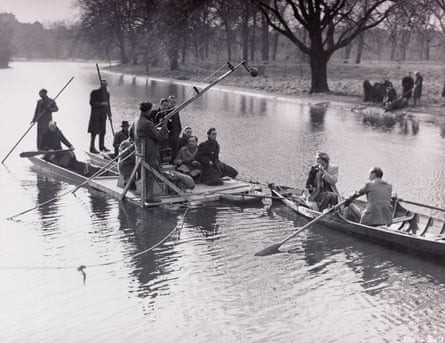
“I think that the interesting character is the friend who returns to his home and finds the bed still warm,” Wilder said. His more risque American take on forbidden love – 1960’s The Apartment – transplants the story from a social ladder to a corporate one, winning the best picture Oscar for which Brief Encounter had failed to secure a nomination.
In the UK, the film’s recurrent place on those newfangled TV schedules meant that, by the 1970s, ad man director Alan Parker could use it to advertise Birds Eye roast beef dinners. Rachmaninov’s Second Piano Concerto – which recurs throughout the film – regularly topped polls as the UK’s favourite piece of classical music, as it continues to do today.
Other influences are more subtle. Kazuo Ishiguro’s 1989 Booker prize winner The Remains of the Day bears a striking resemblance to Coward’s dialogue of middle-class repression. Its mid-century butler has internalised the same lessons of duty and propriety to such an extent he may have forgotten how to feel love at all. And the shot-reverse-shot of When Harry Met Sally’s diner scene perfectly mirrors Alec and Laura’s first lunch in a Kardomah cafe, as does the film’s conceit of a relationship built over repeat chance encounters.
Following Coward’s death, too, the film’s LGBTQ+ resonances have been brought to the fore. His penchant for packing his scripts with affairs, love triangles and secret crushes had hardly gone unnoticed among the gay community of 1945.
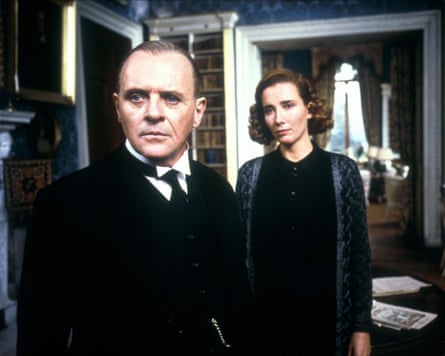
Dying just six years after homosexuality was first decriminalised in 1967, the writer’s post-mortem exit from the closet only confirmed that the film’s study of forbidden love may have meant something more to its author than the social stigma that scared Alec and Laura into obedience.
In the 21st century, Sofia Coppola cited it as an inspiration for her 2003 film Lost in Translation. “You feel so much in just a gesture or a pause,” she said. “It’s so emotional but everything’s under the surface. Maybe that’s very English? But I love that.”
Brief Encounter’s ideas have proved more universal than Johnson’s cut-glass accent suggests. Wong Kar-wai’s In the Mood for Love explores similar themes of buttoned-up infidelity, as much about the social pressure imposed on a relationship as the infatuation itself.
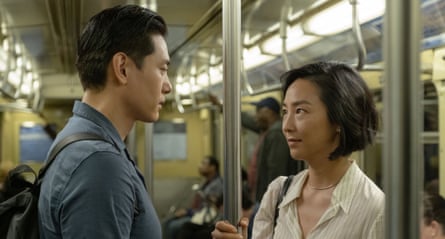
Canadian director Celine Song explored its “what if?” question through the Korean concept of inyeon (the romantic mystery of a sense of connection between two strangers) in her 2023 film, Past Lives. Its opening shot of a love triangle spotted across a bar mirrors Alec and Laura’s last moments together.
Today, Brief Encounter holds an odd place in the lives of both Lean and Coward: a tearoom romance from a director famed for his bombastic epics, and the last great film from a writer who never thought much of the medium anyway. Still, of all their works, it might just be the one that’s lasted the longest. For 80 years, we’ve never been able to stop asking: “What if?”




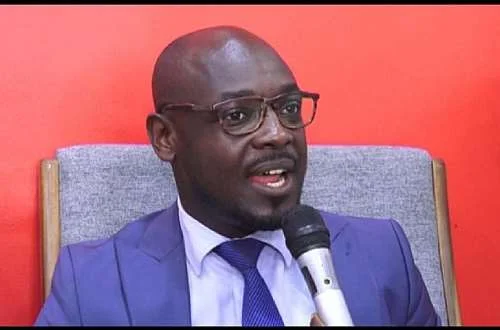
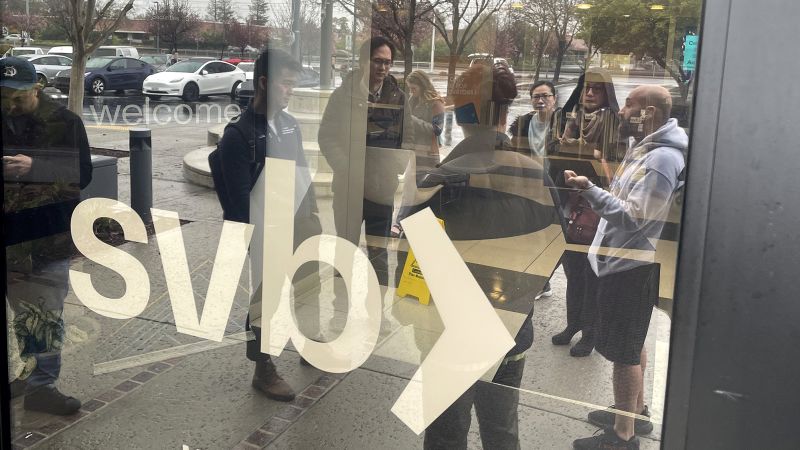
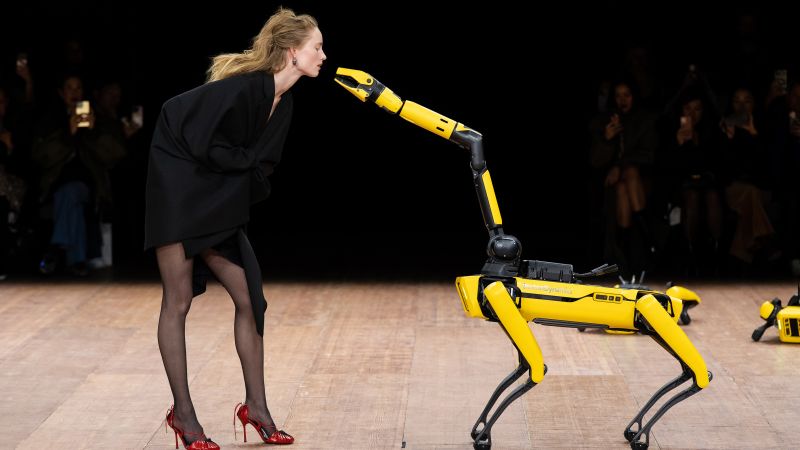
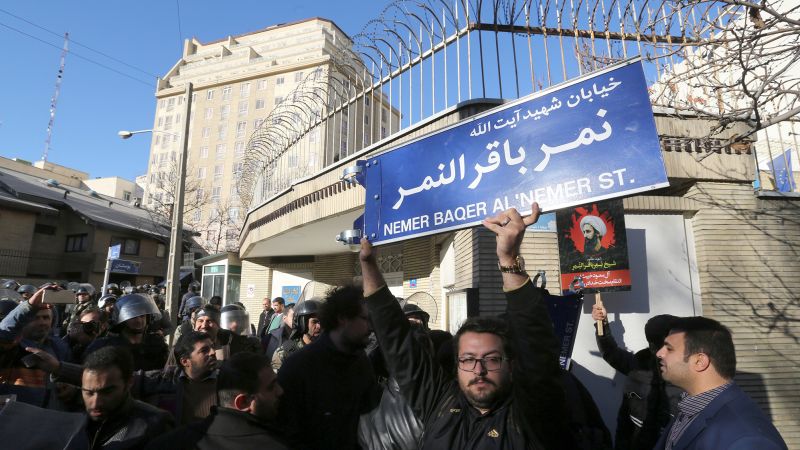
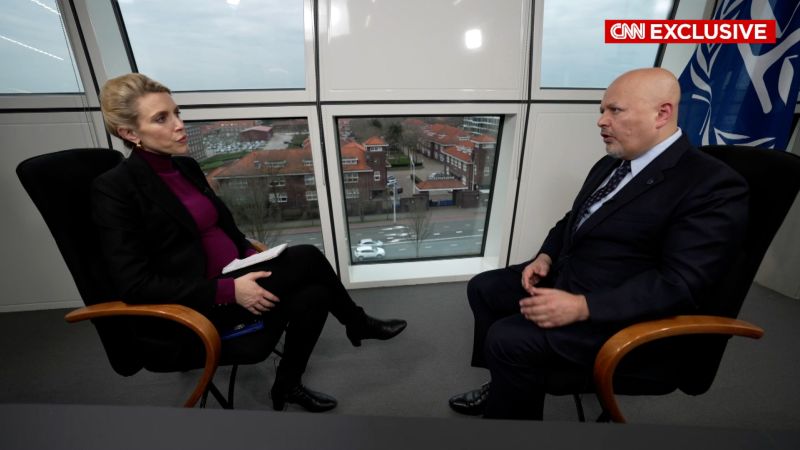
 English (US)
English (US)